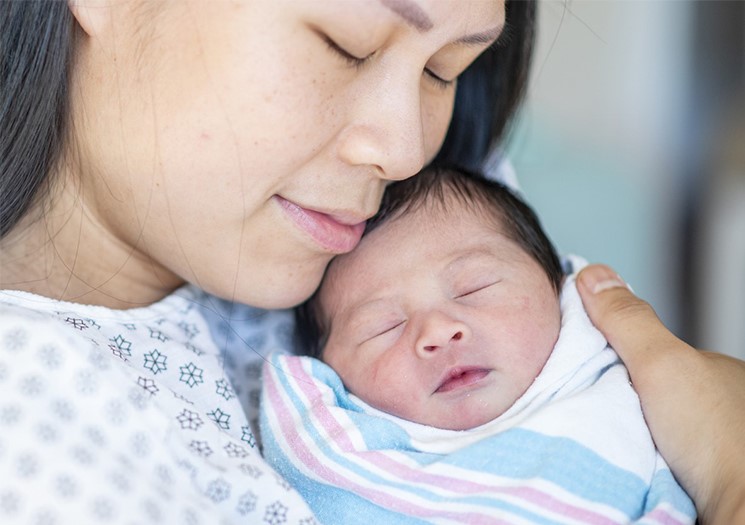- Find a Provider
-
Services
-
Redeemer Health provides compassionate care across every stage of life.
- View all Services
- Health Care
- Cancer Care
- Heart Care
- Hospital at Home
- Maternity Care
- Infusion Therapy Center
- More Health Care Services
-
- Patients & Visitors
- Locations
- Careers
Group B Strep: Safeguarding Mom and Baby
July 24, 2024
categories:

By Lauren Matsnev, MD, OB-GYN at at Kramer OB-GYN and Associates, a Redeemer Health practice providing complete obstetrical and gynecological care
Protecting your health and your baby’s well-being during pregnancy is a top priority. This includes going for routine check-ups and getting regular screenings recommended by your doctor.
One particularly important screening in the third trimester is for Group B Streptococcus (GBS), commonly known as Group B Strep.
What is Group B Strep?
GBS is a type of bacteria often found in the genital or gastrointestinal tracts of healthy women. While generally harmless in adults, GBS can pose significant risks during pregnancy and childbirth.
Why is GBS screening important?
During pregnancy, GBS may occasionally lead to UTIs or other infections, which are treatable with antibiotics. For newborns, exposure to GBS during delivery can result in severe infections like pneumonia, sepsis, or meningitis. These conditions can be life-threatening, making it critical to know if you have GBS.
When and how are you tested for GBS?
Testing for GBS is typically done between weeks 35-37 of pregnancy. The procedure is quick, painless, and usually performed during a regular prenatal visit. Knowing whether you have GBS enables you and your health care provider to take the necessary precautions to protect your baby during delivery.
What happens if you test positive for GBS:
If you test positive for GBS, you will receive antibiotics during labor. These antibiotics are safe for both you and your baby and significantly reduce the risk of transmitting the bacteria during childbirth. Should any complications occur from GBS, hospital staff are well-trained to provide immediate antibiotics and closely monitor your baby after birth.
Knowing your GBS status is the first step in safeguarding your baby during childbirth.
By getting tested, discussing antibiotics with your doctor, and taking timely action during delivery, you can significantly reduce the risks associated with Group B Strep.
Take charge of your pregnancy health today. Talk with your doctor about GBS testing and make informed choices to protect the well-being of your precious new arrival.
To find a Redeemer Health OB-GYN near you, call our Physician Referral Service at 800-818-4747 or visit the Find a Provider directory on Redeemer Health’s website.
Holy Redeemer Hospital’s maternity center is recognized as a Blue Distinction Center+ by the Blue Cross Blue Shield Association for its history of delivering high-quality maternal care, safely and effectively.
If you are expecting a new baby, be sure to visit RedeemerHealth.org/MaternityCare to register for a tour of our maternity center, access helpful educational resources and videos, and join our Redeemer Baby Online Community, where you can meet and stay connected with other new moms.
About the Author: Lauren Matsnev, MD, is an Obstetrician and Gynecologist (OB-GYN) specializing in pregnancy, childbirth, and women's reproductive health. She received her medical degree from Drexel University College of Medicine. Dr. Matsnev currently sees patients at Kramer OB-GYN and Associates, a Redeemer Health practice providing complete obstetrical and gynecological care.



